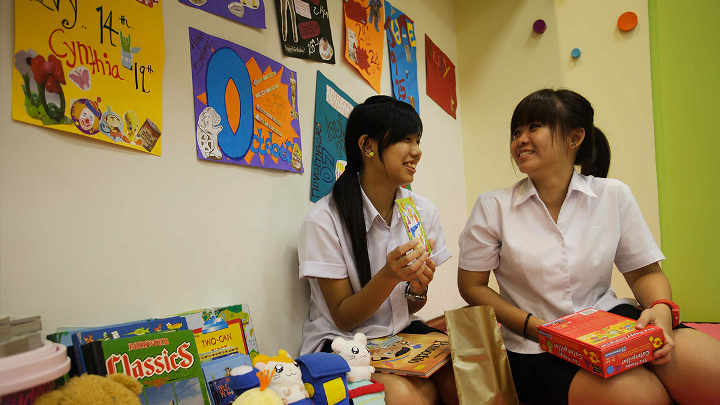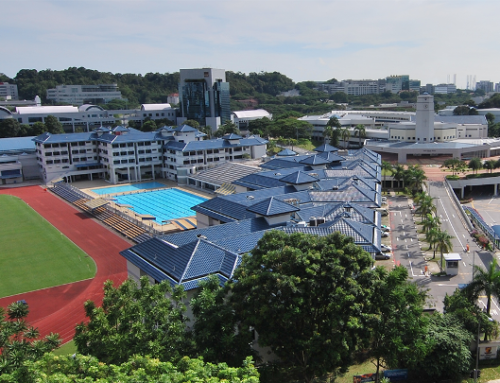Apprenticeships could become a reality for polytechnic and ITE students in future.
from Straits Times, Feb 4 2014An Education Ministry review, called Applied Study in Polytechnics and ITE Review (ASPIRE), is underway to “future-proof” young Singaporeans against unemployment. It is studying Germany’s apprenticeship model.
One sector the review will focus on is early childhood education.
Details are pending, but preschools said apprenticeships could help ease their manpower crunch in the long term.
Michelle Tan is a third-year student of early childhood studies at Temasek Polytechnic.
For the diploma course, she interned as an assistant teacher at a local preschool for three months.
Ms Tan said: “(The internship) was the best part of the whole three years in Temasek Polytechnic. One has to learn to adapt to the work surrounding, to the children, and try to meet their needs.
“Even our teachers told us that for every batch of year three students who come back from internship, we’re all more mature, and there’s a certain growth in every individual.”
The internship also helped decide if working with young children was what she truly wanted as a career.
But she said a longer, more structured work experience – or an apprenticeship – would be even better.
Ms Tan said: “Once we adapt to the surroundings we could apply more, and learn more from our experience.”
Educators said it is about time that more focus is given to training and learning on the job.
Dr Karuna Marthenis, course manager of early childhood studies at Temasek Polytechnic, said: “We are talking about students who are pre-service people, who are going to go out there after three years of education to work with young children or other colleagues.
“They need to be more confident, they need to have more practice, and how else does it come? During their three-year programme with us, but within that programme they need more time with industry.”
This would mean more learning outside of the school.
Asked if apprenticeships would diminish the role of polytechnic lecturers and teachers like herself, Dr Karuna said: “Definitely not. They need that theoretical application, and that comes from us, the lecturers or teachers so to speak. Always, the apprentice needs someone more knowledgeable to guide them. This is also in our pedagogical practices.
“When our young teachers go out there to work with young children, they don’t teach and teach, they facilitate the child’s learning – likewise for us.”
Anchor preschool operator PAP Community Foundation (PCF) is prepared to expand its mentorship programme for trainee teachers, said CEO Tay Swee Yee.
PCF receives 50 to 70 trainees, mainly its own scholars and other polytechnic students, at its kindergartens or childcare centres every year.
The early childhood education sector is facing a severe manpower crunch.
“If you don’t take trainees, it’s very hard to have experienced teachers,” said Ng Gim Choo, who runs EtonHouse International, a private preschool with centres in Singapore and China.
EtonHouse China already has an apprenticeship programme that Mdm Ng said can be replicated in Singapore.
Trainees are selected from vocational colleges, and undergo a one-year apprenticeship during the final year of their three-year diploma course.
Those who successfully complete the apprenticeship are awarded the diploma and become qualified assistant teachers.
“It benefits both preschool and trainee,” said Mdm Ng.
Dr Khoo Kim Choo, founder of Preschool for Multiple Intelligences, said: “When you teach somebody you are actually learning yourself, again, and learning to be better. So it works both ways. But yes, it is going to be a bit of a demand for the teacher at first. But as we get used to the system, I think it would work out pretty well.”
Experts said investing in apprentices is necessary, to get more people into a growing sector that needs more hands on deck.


